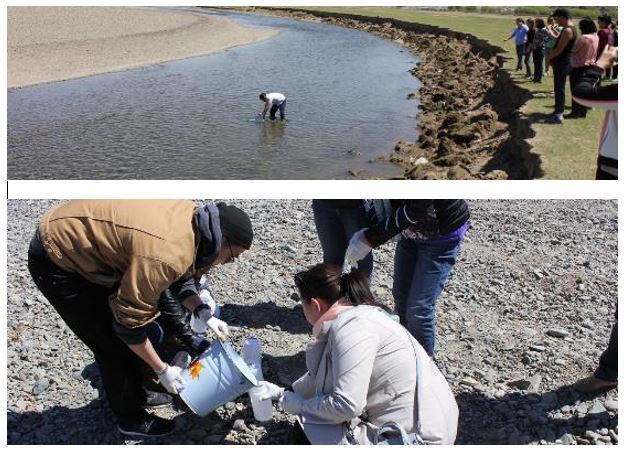The objective of the Water Quality Monitoring and Management (WQM) training was to build sustainable national capacity for monitoring and management the quality of water (drinking, surface, and ground). The implementing partners for the training are the Ministry of Environment and Tourism (MET), and the Mongolia Water Forum Uskhelts (MWF).
The training was provided to the River Basin Administration (RBA) offices and Local Environmental Laboratory (LEL) specialists. It was decided during the training design to split the national training workshops into three round/part with the maximum of 12 participants in each training in order to be more efficient and practical. The training workshop held in Ulaanbaatar from 28 April to 5 June 2017.
Total 35 participants have been attended the training and gained knowledge in the following subjects:
- principles of quality monitoring
- field water sampling.
- chemical analysis of water samples.
- National water quality monitoring programme
- application of water quality index.
- water quality management.
- water quality data interpretation
- water quality management.
- cooperation between LELs and RBAs
Facilitators and trainers for the training workshop were from Ministry of Environment and Tourism (MET), National Agency for Meteorology and Environment Monitoring (NAMEM), officers from Central Laboratory for Environment and Metrology (CLEM) and Staff of Mongolia Water Forum Uskhelts NGO.
As part of the integrated water and environmental programmes, there were a biologist, air and soil quality specialist made available from CLEM, to facilitate the biological, air and soil quality sessions.
Most of the participants (98 percent ) evaluated the training ‘Excellent’. All the participants highlighted four points of the training:
- The training was the most effective and beneficial compared other training conducted so far for BSAs staff; because the training combined the theory and hands-on practical sessions; training workshop agenda prepared very efficiently for lectures and practical sessions’;
- Number of participants for one round training and timing was also very good;
- It was very helpful in building the partnership between RBAs and LELs in water management;
- Participants get able to upgrade their skills in analytical testing and data interpretation and management.




